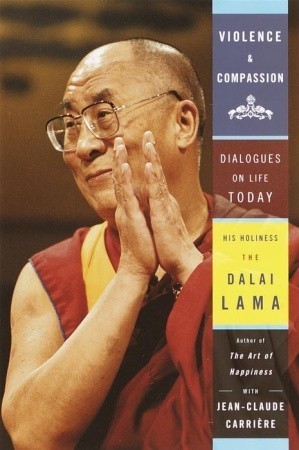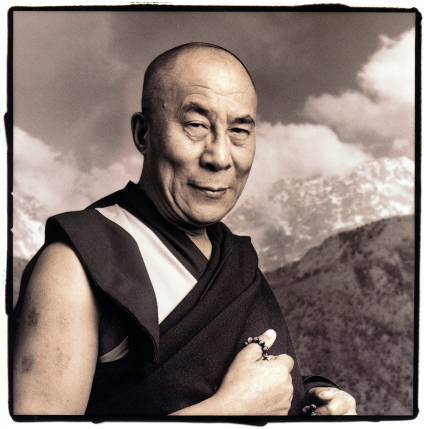
Timeless wisdom on life today from a leading French intellectual and one of the greatest of contemporary spiritual leaders that picks up where The Art of Happiness left off. French film writer Jean-Claude Carri're had the extraordinary opportunity to sit down for a series of conversations with one of today's most respected and popular spiritual leaders His Holiness, Tenzin Gyatso, the fourteenth Dalai Lama. Those interviews, which make up Violence and Compassion, give readers a historic chance to listen in as two formidable thinkers discuss issues that are of concern to all. The discussion covers the various problems that confront world civilization today; including terrorism, the population explosion, environmental dangers, and an escalation in random violence. The Dalai Lama exhibits his characteristic warmth and clarity of thought throughout each of these talks, but what readers will find most valuable is his ability to cut through to the essence of each issue and offer insightful guidance. Carri're, though respectful, never settles for pat answers and consistently asks the down-to-earth questions readers themselves would undoubtedly have asked. The insightful dialogues contained in Violence and Compassion brings humanity the profound wisdom needed to tackle the challenges of the twenty-first century.
Author

Jetsun Jamphel Ngawang Lobsang Yeshe Tenzin Gyatso (born Lhamo Döndrub), the 14th Dalai Lama, is a practicing member of the Gelug School of Tibetan Buddhism and is influential as a Nobel Peace Prize laureate, the world's most famous Buddhist monk, and the leader of the exiled Tibetan government in India. Tenzin Gyatso was the fifth of sixteen children born to a farming family. He was proclaimed the tulku (an Enlightened lama who has consciously decided to take rebirth) of the 13th Dalai Lama at the age of two. On 17 November 1950, at the age of 15, he was enthroned as Tibet's ruler. Thus he became Tibet's most important political ruler just one month after the People's Republic of China's invasion of Tibet on 7 October 1950. In 1954, he went to Beijing to attempt peace talks with Mao Zedong and other leaders of the PRC. These talks ultimately failed. After a failed uprising and the collapse of the Tibetan resistance movement in 1959, the Dalai Lama left for India, where he was active in establishing the Central Tibetan Administration (the Tibetan Government in Exile) and in seeking to preserve Tibetan culture and education among the thousands of refugees who accompanied him. Tenzin Gyatso is a charismatic figure and noted public speaker. This Dalai Lama is the first to travel to the West. There, he has helped to spread Buddhism and to promote the concepts of universal responsibility, secular ethics, and religious harmony. He was awarded the Nobel Peace Prize in 1989, honorary Canadian citizenship in 2006, and the United States Congressional Gold Medal on 17 October 2007.